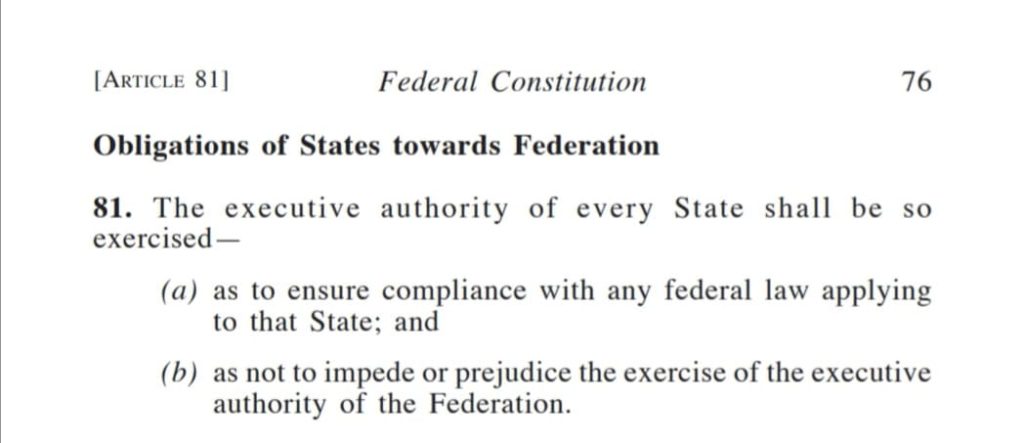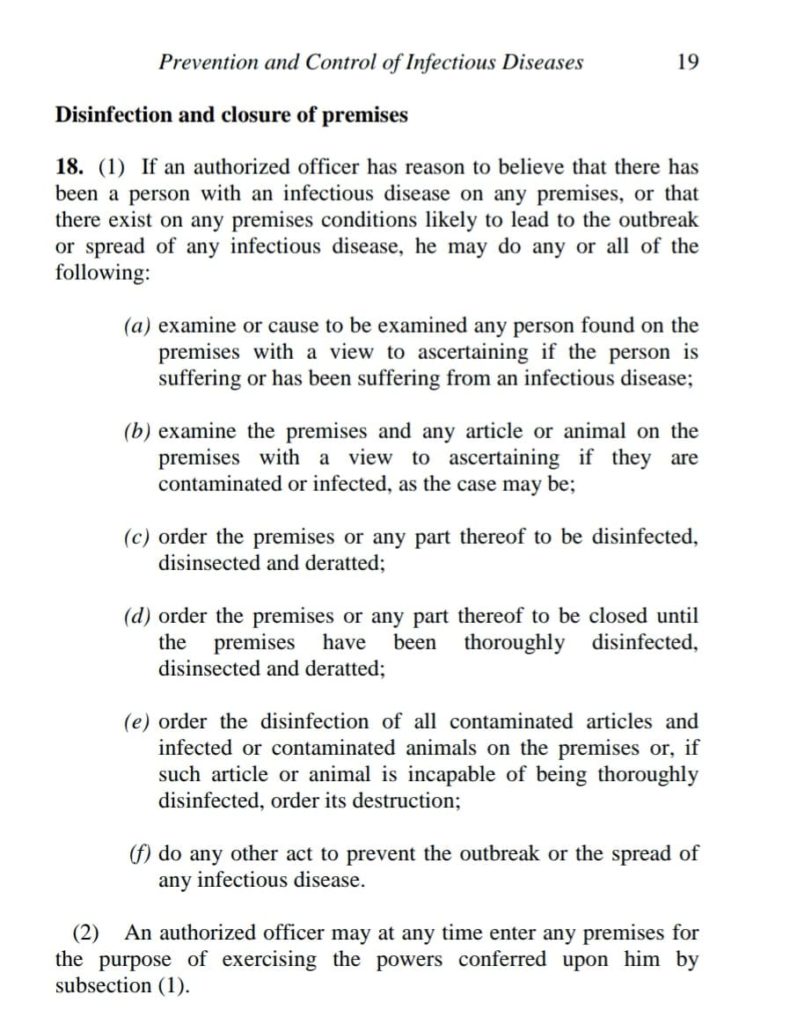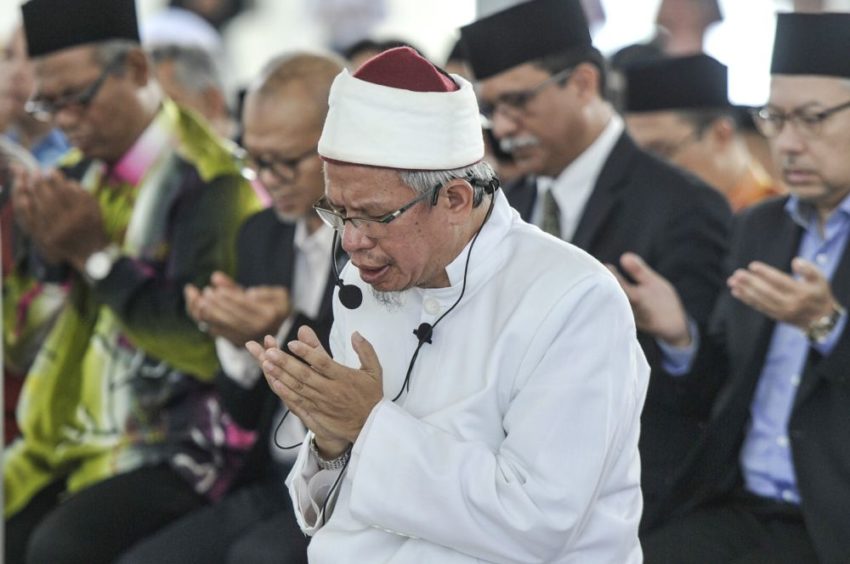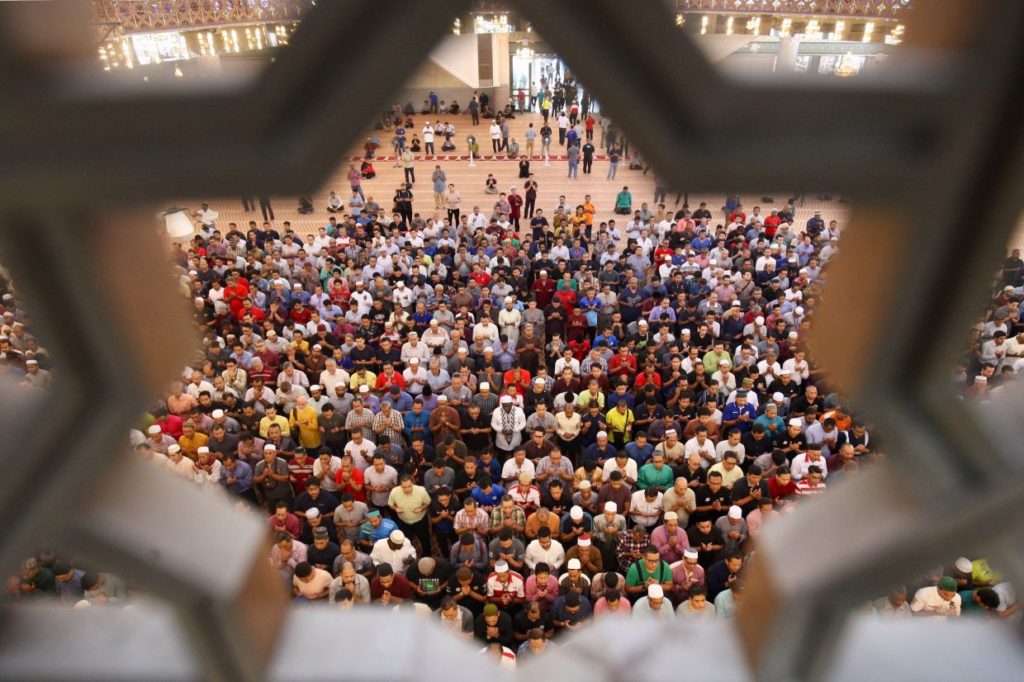Yesterday, Prime Minister Muhyiddin announced that, in light of the Covid-19 outbreak, all “gatherings” including international meetings, sports, social and religious events will be postponed until April 30 or cancelled.
However, there seems to one exception: prayers at mosques would still proceed. Muhyiddin nonetheless hopes that Islamic religious authorities in all States will issues guidelines similar to the one issued by Minister in charge of Islamic Affairs, Datuk Seri Zulkifli Mohamad Al-Bakri. Todate, Perlis is the sole State which has cancelled Friday prayers and replaced it with Zuhur prayers.
An interesting discussion ensues: which entity has jurisdiction over this matter, the Federal Government or the State Governments?
One Singaporean newspaper has even speculated that “the reason the Federal Government might not have issued a blanket cancellation of the Friday prayers is that Islamic affairs are under the direct jurisdiction of each state ruler and considered a sensitive matter for the central government to intervene.”
The Federal, State & Concurrent Lists Under the Constitution
The starting point is the fact that Malaysia is a Federation of many States. There is hence a Federal Government, and multiple State Governments.
The Federal Government has jurisdiction over matters stipulated in the “Federal List” under the Ninth Schedule of the Federal Constitution – this includes foreign relations, military defence, etc.
The State Governments have jurisdiction over matters in the “State List” – this includes land matters, local government, etc.
There is also the “Concurrent List”, whereby both Federal and State Governments have jurisdiction over – this includes sports, housing, etc.
So Which Entity Ultimately Has Jurisdiction?
No doubt matters relating to “mosques and Islamic public place of worship” fall under the “State List”.
However, “public health” falls under the “Concurrent List” – therefore, both the Federal Government & State Governments have jurisdiction over “public health” matters.
This is where Article 81 of the Constitution comes to the forefront. In gist, Article 81 provides a State Government’s executive authority shall be so exercised: (a) as to ensure compliance with any federal law applying to that State; and (b) as not to impede or prejudice the exercise of the Federal Government’s executive authority.

Essentially, primacy must be given to the Federal Government & federal law if there appears to be an overlap of jurisdiction.
In this respect, Parliament has enacted the Prevention And Control of Infectious Diseases Act 1988. Under Section 18 of such Act, if there exist on any premises conditions likely to lead to the outbreak or spread of any infectious disease, the Federal Government can (a) order the closure of such premise or (b) do anything to prevent the outbreak or the spread thereof.

In other words, if deemed necessary, the Federal Government has powers to order closures of mosques or the cancellation of Friday prayers on the basis that such premises/events involved large number of people conducive for the spread of Covid-19.
Even if the State Governments do not agree to the same, the Federal Government will ultimately prevail pursuant to Article 81.
The Federal Government – Walking on Eggshells
The Federal Government may be holding back due to several reasons.
For one, the Covid-19 outbreak may not be perceived by the Ministry of Health as severe enough to cancel mosque prayers nationwide.
But the chief reason is probably the fact that cancellation of mosque prayers is a sensitive religious matter which may be better left for States to resolve independently. Moreover, this may involve the input of State Rulers who are the Head of Islam in their respective States.
A drastic and non-consultative move on the part of the Federal Government may not be strategic in the long-term. Therefore, the Federal Government is merely playing an advisory role thus far.
However, should the global pandemic turn serious and the State Governments are adamant to proceed with mass Islamic religious gatherings, it is my humble view that the Federal Government has the necessary constitutional muscle to impose a nationwide cancellation of the same under its arsenal of federal laws.

